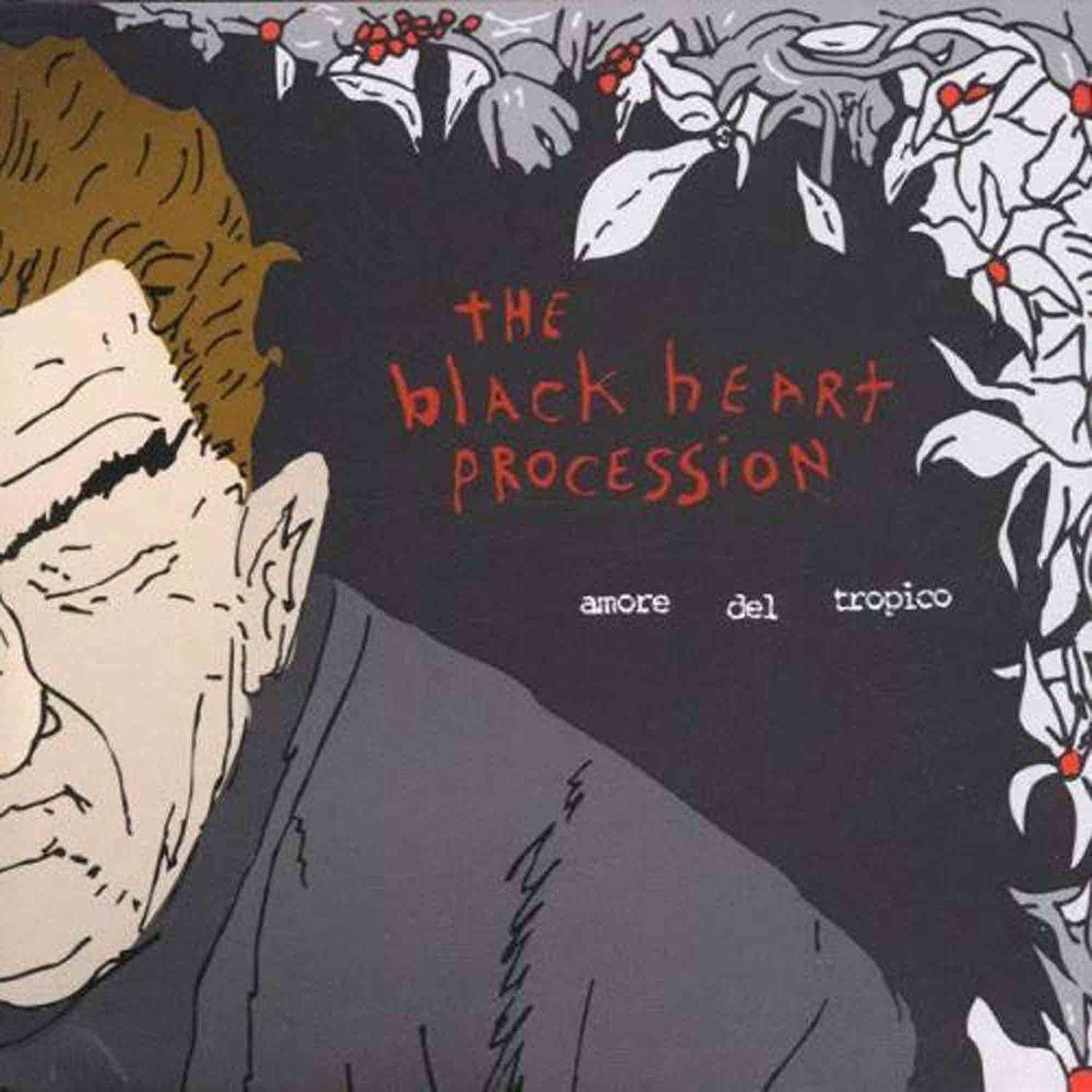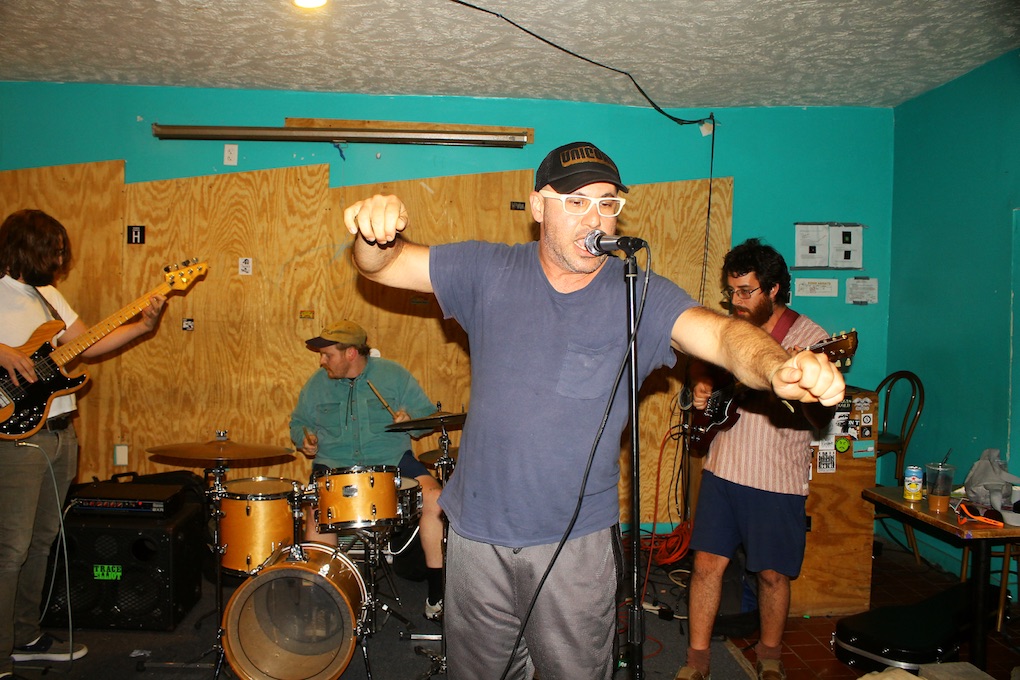It’s less of a feeling than a declaration of intent.
After a brief, 12-second-long sound snippet, The Black Heart Procession launches bravely, even defiantly, into “Tropics of Love,” with some scratch-on-strings leading to a vaguely Latin groove, crystalline guitars and … could that be a group of cooing female backing singers?! The song un-creases itself and the listener is treated to a dark narrative buoyed by upstrokes, splashy Caribbean colors, and accented piano. The band, over its previous three full-length LPs in the late 1990s and early 2000s, had proven itself more than adept at the somber and funereal; here on Amore del Tropico, which turns 20 in this fine Year of the Lord 2022, they livened up the proceedings but stayed heavy on the noir-ish.
There’s a reason Amore del Tropico isn’t titled Four. After a previous spell of numbered outings – a trope they revisited, to some delight, with 2009’s Six – this was a bit of a break, a line in the sand, a distinguishing characteristic. Amore del Tropico, for sure, owes a lot to the San Diego group’s roots and its discography, already storied, up to that point. But, no doubt, there were other elements tossed into the fire. “Broken World” lacked percussion, sans a persistent güiro. “The Visitor” and “The Waiter #4,” a familiar staple featured on most every Procession full-length, gets heavy synth treatments. “Fingerprints” is another Bizarro noir experiment, with heightened production and – again – those female backing singers. Even “The Invitation,” whose dramatic piano lead seems to call to mind both 2 and Three, is built out with menacing sound effects and reverb-y guitars whose color-trails fall a little bit longer than usual.
Classic moments? Yeah, of course the band occasionally breaks the stare and looks in the rear-view. Sort of. “Before the People” hints at a contribution for musical saw, the Procession’s old stand-by, but, again, the percussive clip is more hip-hop than post-rock, a daring choice. Only on the barnburner “Did You Wonder” does the band just … y’know … rock, with frontman Pall Jenkins belting out the lines over a roped wall of electric guitar. (There are shades here, too, of “Release My Heart,” an early Black Heart Procession “hit.”)
Corey Rusk and Touch and Go Records were good to Pall Jenkins and company. The Chicago label and its famous headman were quick to spot talent in the 1980s and 90s – their roster blows minds, even today – and they did much the same with this morose little outfit, signing both them and Pinback, another Three Mile Pilot spin-off. The two California bands played off each other’s discography and a better journalist needs to document Pilots’ trajectory, both pre- and post-formation, to get a real sense for the impact these guys had on post-rock during its late 90s/early 00s heyday. Thrilling stuff, and frequently placed in the background to make room for the Mogwais and other heroes of the moment.
Amore del Tropico ends, somewhat oddly, with “The One Who Has Disappeared,” which sounds like Jenkins is a few drinks into a rather maudlin little session. The band adds colors – piano trills here, the occasional spartan drum kit, a languid acoustic guitar warbling through Jenkins’ sing-song. The song, though, doesn’t feel quite right, as if to muster the band’s existing sound – again, the funereal – Jenkins has to be a little boozed up. But in the end it does – quite beautifully, we might add.
The Black Heart Procession never made another great record after Amore del Tropico. The Spell and Six, their last full-length, were okay and sometimes half-hearted vehicles for decent songs, even some good ones, some duds, too. But nothing hung together like Three or Amore del Tropico. Twenty years later, its colors still pop and remind us of the best of this under-rated band: an ensemble willing to take chances and, yes, even break a spell or two. — Justin Vellucci, Spectrum Culture, Aug. 3, 2022
-30-



